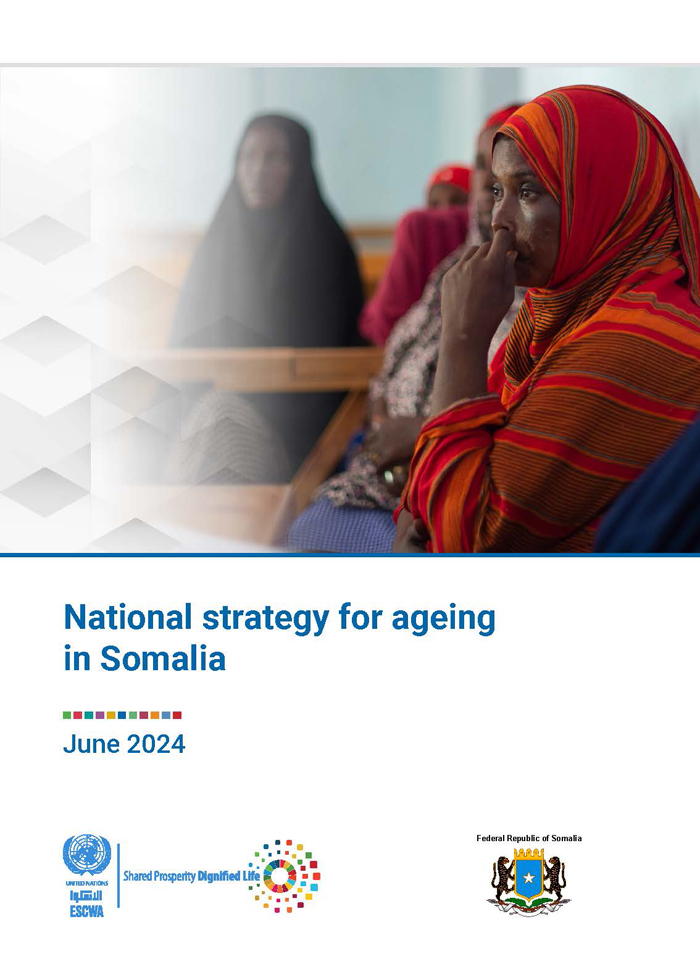
ESCWA Publication: E/ESCWA/CL2.GPID/2022/TP.26
Country: Republic of Yemen
Publication Type: Reports & studies
Cluster: Gender Justice, Population and Inclusive Development
Focus Area: 2030 Agenda, Governance & enabling environment
Initiatives: Promoting social justice
SDGs: Agenda 2030, Goal 8: Decent Work and Economic Growth, Goal 10: Reduced Inequalities
Keywords: Social justice, Wage policy, Yemen, Economic growth, Social integration, Social protection, Technical cooperation, Social justice, Social security, Workforce
National report on the compatibility of wage policy with the principles of social justice in Yemen
December 2022
The report measures the degree to which national wage policy in Yemen is compatible with the principle of social justice, identifies gaps and strengths, and measures its linkage with efforts towards social justice. The report also includes a summary of the main areas of intervention to bridge these gaps and correct the processes for formulating, implementing and following up on wage policy in Yemen in general, and reviews the most important recommendations in this regard. Based on the results of the assessment, existing strengths within wage policy should be consolidated, gaps addressed and mechanisms and resources developed to overcome them in a systematic and coordinated manner.
This requires the development of a fair wage and labour protection policy, taking into account factors specific to the Yemeni context. Future actions could include raising awareness about social justice, building institutional capacities on how to integrate them into wage policies and coordinating these efforts among different stakeholders; studying, reviewing and revising the regulatory and legal framework for businesses to reduce existing barriers and foster the transition to a structured economy; developing a new minimum strategy for a unified structure that includes all workers in the public and private sectors; increasing the national minimum wage to at least $100 to keep pace with the cost of living; reviewing restrictive laws, issuing conditions of service in Government agencies, and stopping partial solutions to the problem of employment in the public sector; strengthening the role of the government apparatus to reflect the extent of satisfaction of workers with state agencies in the field of services, improving internal training institutions, and assessing training needs; developing effective national policies and strategies for social protection based on social dialogue, strengthening its management and supervision, improving coordination with other economic and social policies, and increasing its resilience and ability to face crises.
Related content
2030 Agenda
, Governance & enabling environment
,
The report measures the degree to which national wage policy in Yemen is compatible with the principle of social justice, identifies gaps and strengths, and measures its linkage with efforts towards social justice. The report also includes a summary of the main areas of intervention to bridge these gaps and correct the processes for formulating, implementing and following up on wage policy in Yemen in general, and reviews the most important recommendations in this regard. Based on the results of the assessment, existing strengths within wage policy should be consolidated, gaps addressed and mechanisms and resources developed to overcome them in a systematic and coordinated manner.
This requires the development of a fair wage and labour protection policy, taking into account factors specific to the Yemeni context. Future actions could include raising awareness about social justice, building institutional capacities on how to integrate them into wage policies and coordinating these efforts among different stakeholders; studying, reviewing and revising the regulatory and legal framework for businesses to reduce existing barriers and foster the transition to a structured economy; developing a new minimum strategy for a unified structure that includes all workers in the public and private sectors; increasing the national minimum wage to at least $100 to keep pace with the cost of living; reviewing restrictive laws, issuing conditions of service in Government agencies, and stopping partial solutions to the problem of employment in the public sector; strengthening the role of the government apparatus to reflect the extent of satisfaction of workers with state agencies in the field of services, improving internal training institutions, and assessing training needs; developing effective national policies and strategies for social protection based on social dialogue, strengthening its management and supervision, improving coordination with other economic and social policies, and increasing its resilience and ability to face crises.



